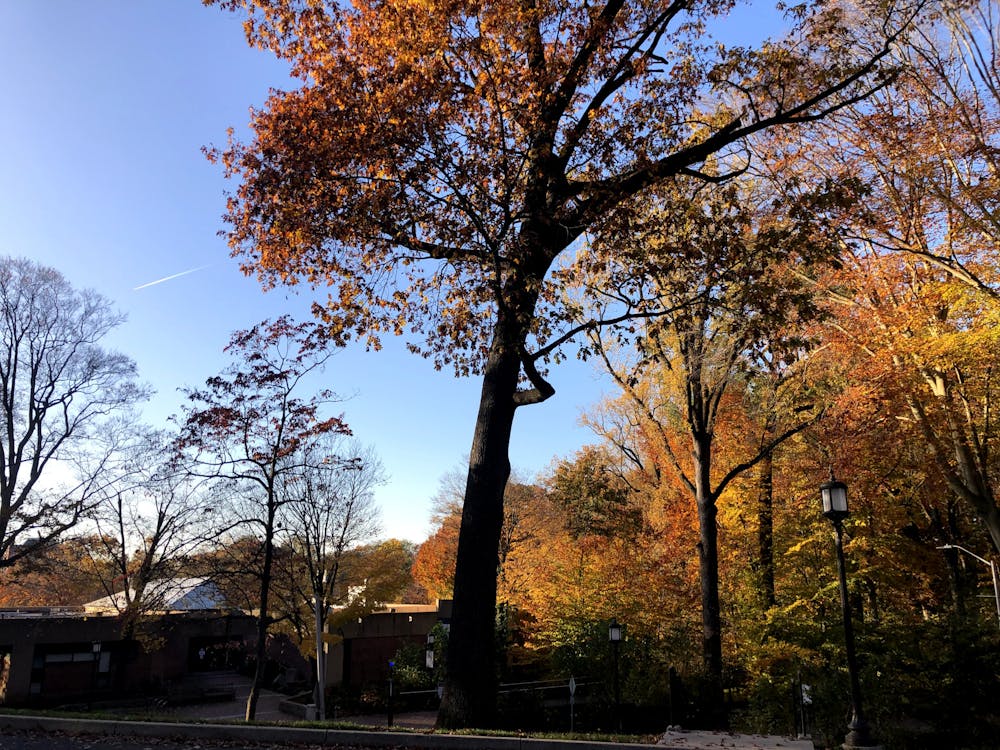The Japanese American Student Association (JASA) held its first-ever speaker event on Thursday, Nov. 19. The event, titled “Ethnic Citizenship Regimes and Co-Ethnic Immigration in Japan and Korea,” featured Erin Aeran Chung, a Political Science professor at Hopkins. Chung is the Charles D. Miller chair in East Asian Politics and author of the recently published book Immigrant Incorporation in East Asian Democracies.
Chung noted that while East Asian countries are not typically included in immigration studies and are not considered to have multiethnic populations, there has been a significant increase of immigrants in Japan and South Korea. During this time, Japan and South Korea continued to implement immigration policies which, in her view, create unfair circumstances for foreigners.
According to Chung, this trend has led to the development of “noncitizen hierarchies.” She specifically zeroed in on coethnic immigrants, groups such as the nikkei or Joseonjok, who share the ethnicity of their countries but are not born and raised there. They are not necessarily foreigners to the countries they live in but, at the same time are not fully assimilated into the culture.
“There are specific challenges for coethnic immigrants,“ she said. “They face unique types of discriminatory attitudes and experiences, which go against the idea that as coethnics they would automatically be treated better.”
For example, while they received preferential treatment in their ability to secure a visa, they also face discrimination for their differences from the native population.
Language has also been used as a discriminatory tool against coethnic immigrants. During Chung’s field research, she interviewed a coethnic person in South Korea who was not given an “honorific,” which is typically given to elders. However, a younger person was given the honorific because he was a native Korean.
Responding to these dynamics, Japan implemented a “paid to leave” strategy which gives immigrants a certain amount of money to leave the country. Chung expressed her disagreement with this approach and instead called for cooperation between the government and civil organizations.
“It really has to come from the grassroots level; top-down legislation will not necessarily create harmonious relations,“ she said. “But at the same time, without structural reforms there are limits to grassroots mobilization. Even the most generous local governments and civil society organizations cannot prevent migrant workers from being deported, facilitate naturalization for foreign residents or guarantee rights.”
JASA Event Coordinator Ayaka Inoki echoed the professor’s call for changes to immigration policies in an interview with The News-Letter.
“It is important that we attack these issues from the grassroots level so that we can structurally change and implement a more accepting and open-minded policy for coethnic Japanese and Koreans,“ she said.
Inoki explained that while the main goal of JASA is to focus on Japanese culture, she hopes that the organization can accomplish more.
“On a larger scale, I want others to understand the interconnectedness of the different cultures in the world,” she said. “Through JASA’s events, I hope students can come to appreciate not just Japanese culture but how all cultures depend and affect one another.”
Freshman Arjun Yogaratnam appreciated the Q&A portion of the event.
“This Zoom event in particular allowed for a comparable amount of interaction to an in-person event,“ he said. “The fact that I could join from the comfort of my home also aided in making the event more accessible.”
In an interview with The News-Letter, Chung suggested that students interested in immigration and racial politics should broaden their scopes and focus on nontraditional cases as well.
“Oftentimes when we talk immigration or racial politics, we do it through the prism of the North American and European experiences, which is very helpful for understanding dominant frameworks,“ she said. “But it falls short in explaining the rest of the world.”





